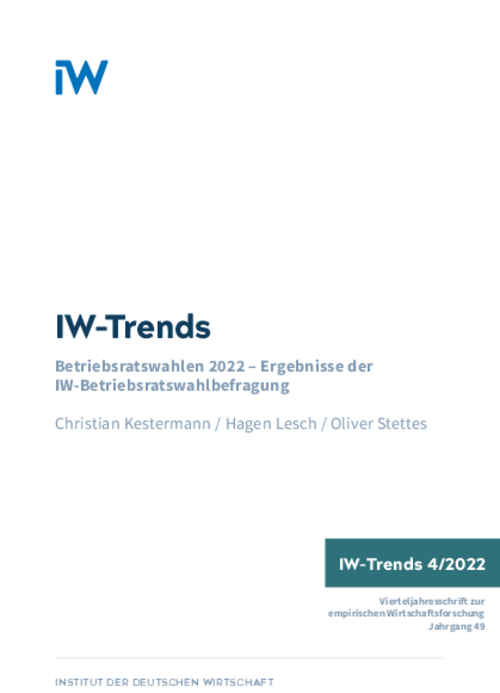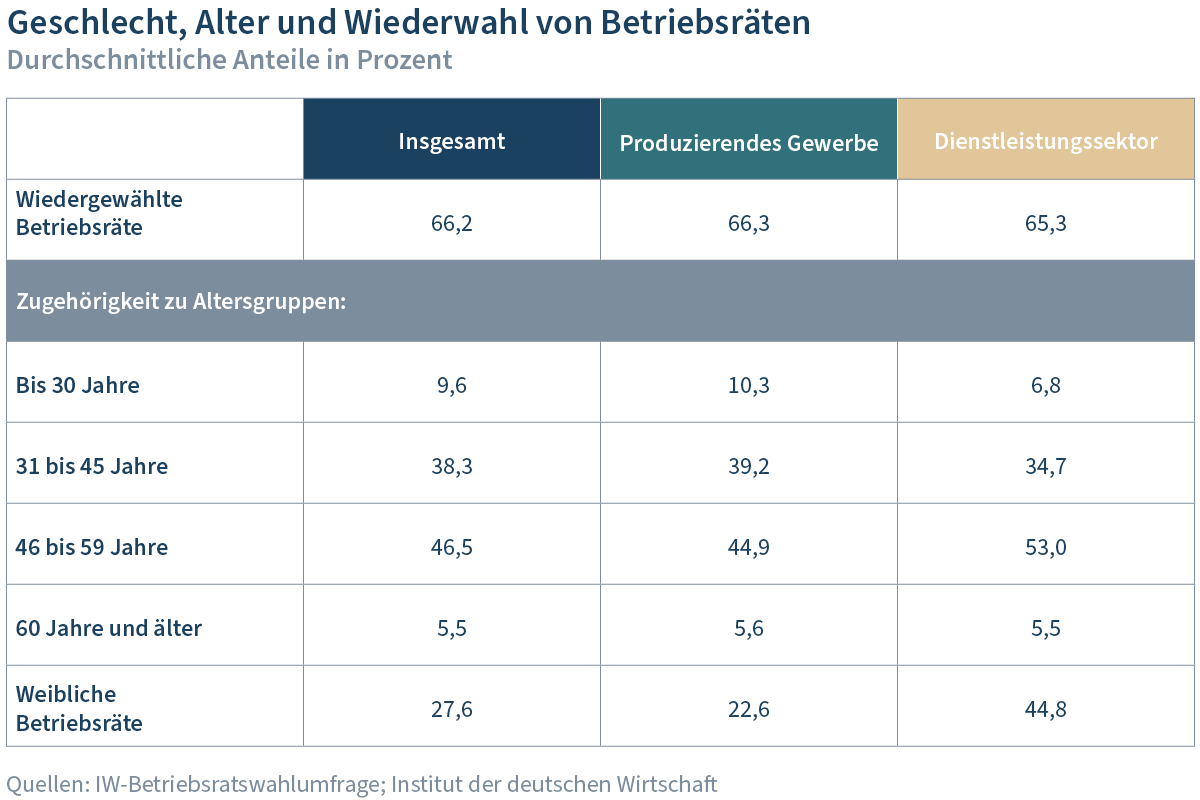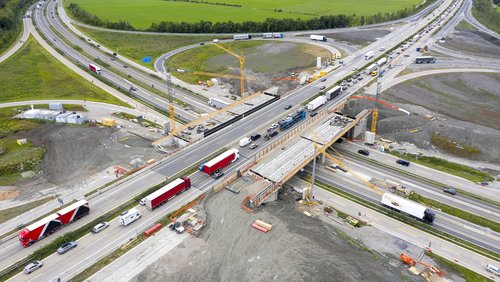Works councils receive strong backing from the workforces they represent. Nevertheless, the drop in turnout reported in the IW Works Council Election Survey 2022 suggests that this support is declining.

Works Council Elections 2022: Results of the IW Works Council Election Survey

Works councils receive strong backing from the workforces they represent. Nevertheless, the drop in turnout reported in the IW Works Council Election Survey 2022 suggests that this support is declining.
In those establishments where an election was held, an unweighted average of just under 69 per cent of eligible voters took part, around 5 percentage points fewer than in 2018. At just over 27 per cent, the share of women elected to works councils is in line with the proportion of women among those entitled to vote. However, when it comes to filling the position of works council chair, women remain underrepresented. Overall, four out of ten works council members belong to a trade union, with union membership among workplace representatives higher in manufacturing (50 per cent) and significantly lower in the service sector (12 per cent). In almost half of companies, none of the works council members is in a union, a fraction that has increased considerably since the last elections. The greater the union influence, the greater the likelihood that the number of employee representatives that the Works Constitution Act stipulates be released from their other work is fully met or even exceeded.


Works Council Elections 2022: Results of the IW Works Council Election Survey

More on the topic

Challenges for the debt brake
In 2019, Bardt et al. (2019) initially presented a comprehensive estimate of the unmet public investment needs in Germany not covered in household planning at the time, totaling around €460 billion over ten years.
IW
Tailoring the Truth: evidence on parliamentarians’ responsiveness and misinformation toleration from a field experiment
The rise of populist radical right parties (PRRPs) is largely seen to have been triggered by a dealignment between voters and political elites and to have triggered an increasing supply of misinformation.
IW